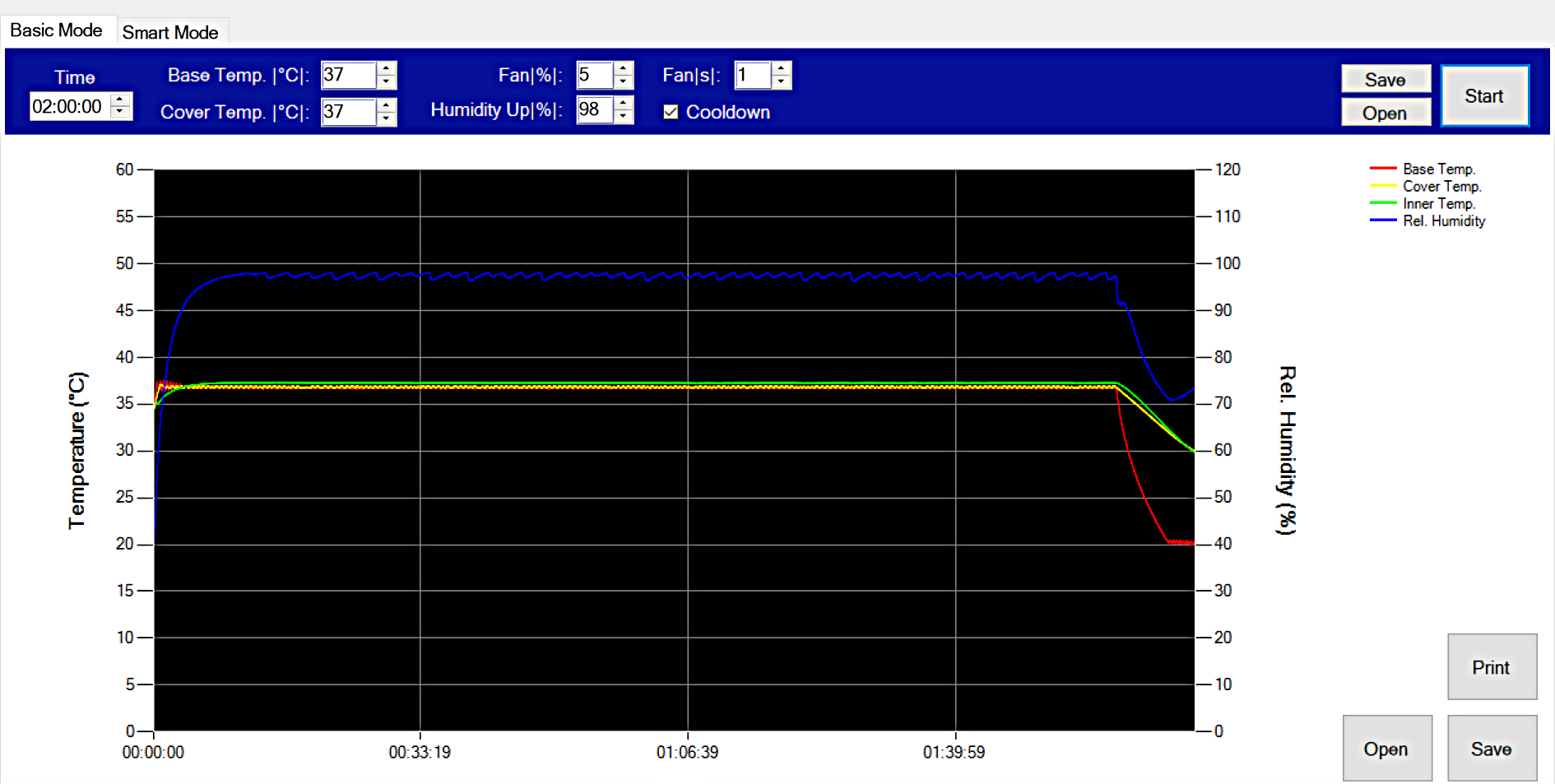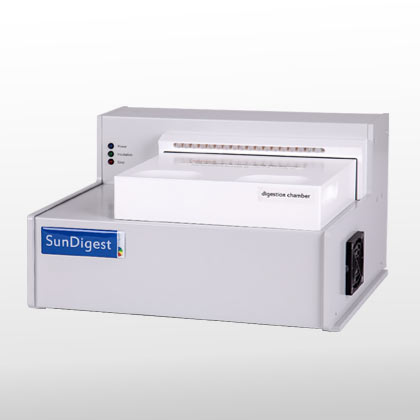
SunDigest Incubator – OVERVIEW
The SunDigest incubation device provides a fully software controlled and highly reproducible digestion process under standardized conditions.
- Temperatures precisely adjustable between 4 °C and 50 °C
- On-Tissue digestion process under optimal humidity
- Preservation of spatial resolution
- Extremely time saving: High performance digestion at 50 °C
- Full digestion process control
- Essential for reproducible results
MALDI Imaging of Proteins and Peptides
MALDI mass spectrometry imaging (MALDI-MSI) enables the visualization of the spatial distribution of a broad range of analytes within thin slices of samples such as human, animal or plant tissue.
While small molecules like pharmaceuticals and lipids can be ionized directly after matrix deposition on the sample, a direct analysis of the vast majority of proteins is not possible. Larger proteins, membrane proteins or even protein complexes with several subunits need to be cut into smaller peptide fragments which then can be subsequently ionized and analyzed by MALDI MS.
As a matter of fact, a successful and reproducible digestion process is essential for any MALDI-MSI of proteins.
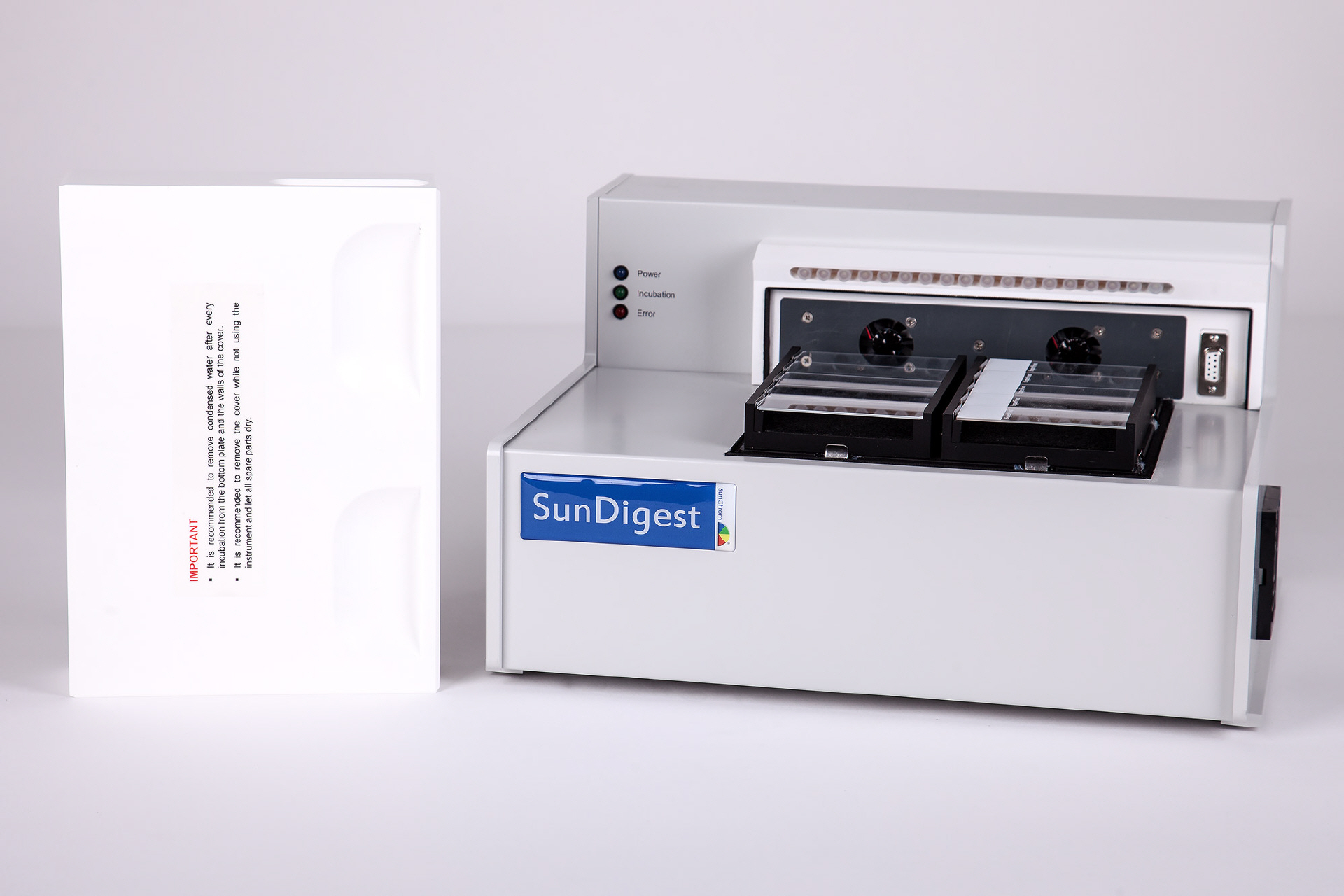
Completely Controlled Digestion Process
The SunDigest incubation device provides a fully software controlled and highly reproducible digestion process under standardized conditions. Temperatures between 4 °C and 50 °C as well as an ideal humidity for the incubation are precisely adjustable.
A typical protease digestion of proteins is performed in solution. In case of a MALDI-MSI experiment, it is not possible to simply distribute a layer of protease solution over the tissue sample to perform the reaction since such an ‘in solution’ on-tissue digestion would result in the loss of the spatial resolution of the analytes. Instead of ‘in solution’ an efficient on-tissue digestion can also be performed under high humidity between 95-100 %. The big advantage of this procedure is that it allows the preservation of the spatial resolution. Certainly this process needs to be precisely controlled to allow a highly efficient digestion and reproducible results. SunDigest is the only solution to establish transferable incubation protocols for any kind of on-tissue incubation.
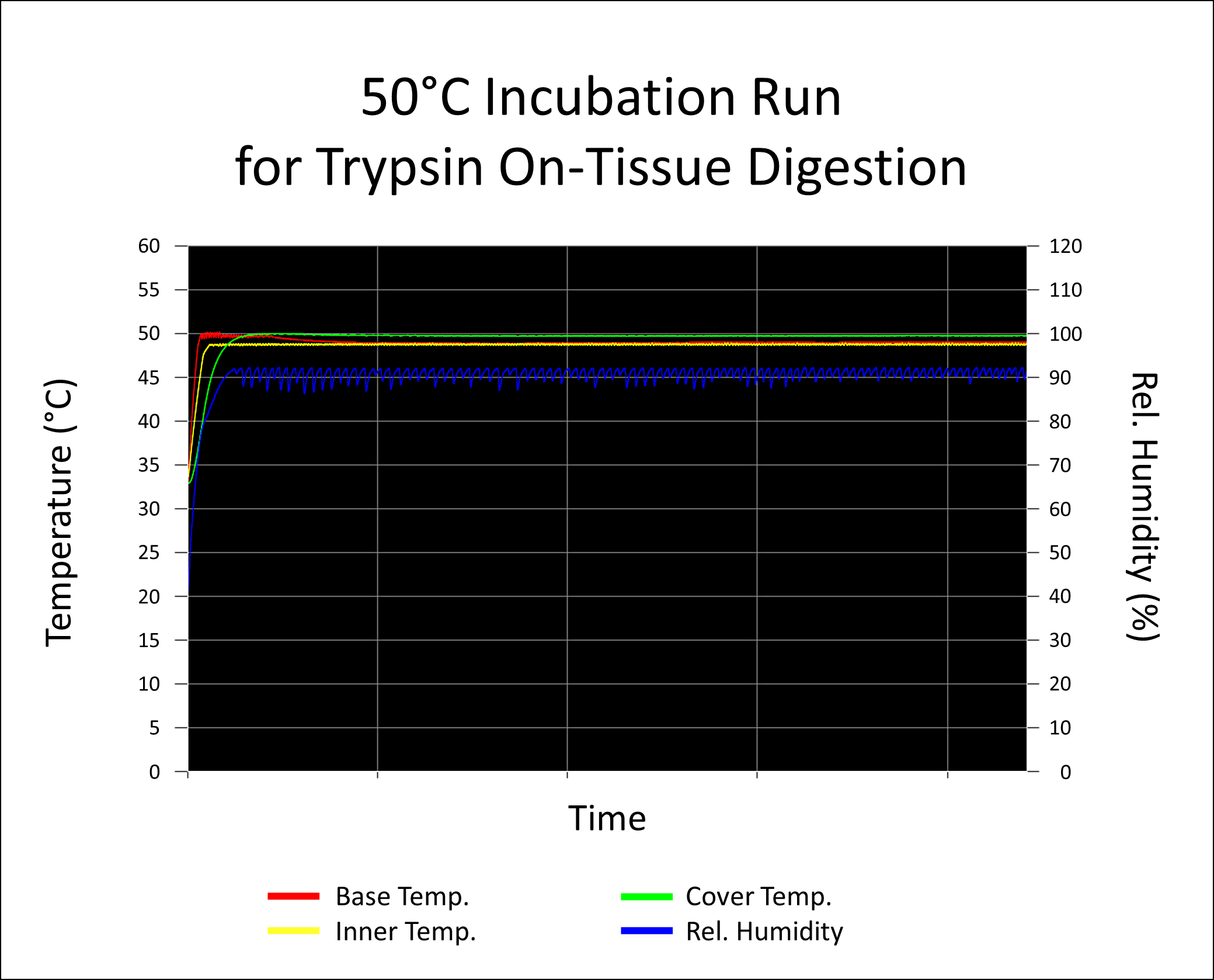
Today, chemically modified trypsin is typically used for on-tissue digestions since it is highly active and a very stable molecule which is extremely resistant to autolytic digestion. The modified enzyme however, was shown to have its maximum performance at 50 °C instead of the commonly applied 37 °C (Havlis et al. Anal. Chem. 2003, 75, 1300-1306 / https://link.springer.com/article/10.1007/s00216-010-4375-3). Therefore, performing an on-tissue digestion for MALDI-MSI at 50 °C is very reasonable. Not only because it saves time, but it also minimizes analyte diffusion during the incubation which can negatively affect the spatial resolution.
Since the water condensation effect is significantly higher at 50 °C compared to 37 °C, the lid of the SunDigest incubation chamber is actively temperature regulated. The heated lid prevents any water condensation which could - in the worst case - result in sample loss due to water dripping onto the tissue surface. The heated lid is essential for enabling a high- performance digestion process at 50 °C, making SunDigest the only instrument worldwide that allows a fast and safe high-performance on-tissue digestion. The reaction can be performed within a minimum of time, an additional factor that needs to be taken into account to preserve the spatial resolution of the analytes.

Mode of Operation
The SunDigest incubator actively controls, regulates and records three different temperatures:
- Base temperature
- Inner temperature (on-tissue temperature)
- Cover temperature
The optimal humidity, which can be defined by the operator in %, is regulated by a well-reasoned interaction of heating and circulation of condensing water from the water reservoir. After the incubation, an automatic cool-down of the samples can be performed by the instrument.
After each run, the corresponding diagram of all recorded parameters can be saved for documentation. This picture shows a typical SunDigest run for two hours at 37 °C.
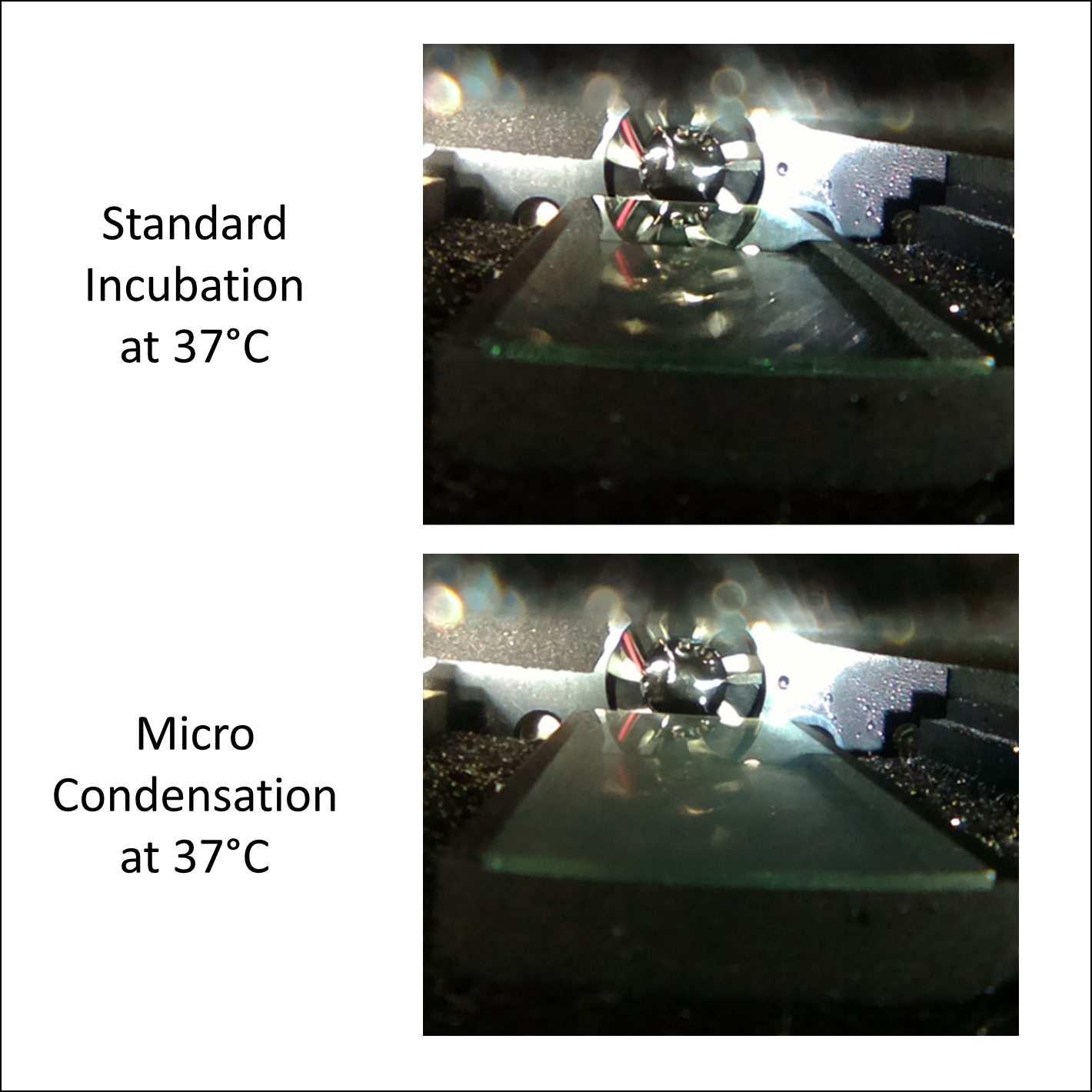
Microcondensation on Tissue Sections
The latest achievement in "On-Tissue Digestion" is the induction of microcondensation on the glass slide and thus on the tissue section. The method of microcondensation creates microscopically small defined water droplets on the tissue section. This allows the enzymatic reactions to take place in a real aqueous environment and not just with the help of air humidity.
This novel method can greatly increase the digestion efficiency of enzymes while the spatial resolution of the analytes in the tissue stays well preserved.




